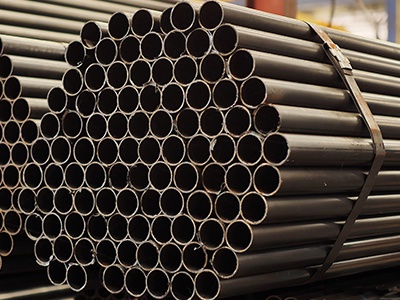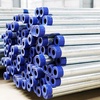Steel pipes are integral to the development and maintenance of modern infrastructure. These robust tubes not only facilitate the transport of fluids, gases, and solids but also support numerous industries including construction, manufacturing, and utilities. In this blog post, we will explore the various types of steel pipes, their applications, and why they remain a preferred material in large-scale projects.
Types of Steel Pipes
Steel pipes come in various shapes and sizes, each designed to meet specific industrial requirements:
-
Carbon Steel Pipes: These are the most commonly used steel pipes, prized for their strength and durability. They are typically used in transporting water, oil, and gas.
-
Stainless Steel Pipes: Known for their resistance to corrosion, these pipes are used in environments that are acidic or alkaline, or where the pipes are exposed to corrosive materials.
-
Alloy Steel Pipes: These include various elements such as chromium, molybdenum, nickel, etc., which enhance their strength and corrosion resistance. They are often used in power plants and refineries.
-
Galvanized Steel Pipes: Coated with a layer of zinc to prevent rusting, these pipes are common in outdoor applications, such as fencing and handrails.
Applications of Steel Pipes
The versatility of steel pipes allows them to be used in a multitude of applications:
-
Transportation of Liquids and Gases: Oil, natural gas, and water are transported from extraction sites to facilities and homes via steel pipes due to their ability to withstand high pressures and temperatures.
-
Structural Components: Buildings, bridges, and tunnels use steel pipes as a critical component of their structure due to their strength and flexibility.
-
Automotive and Machinery: Steel pipes are used in the manufacturing of various automotive parts and machinery due to their ability to be molded into different shapes and sizes.
-
Utilities and Sewage Systems: Steel pipes are essential in sewage systems and for protecting electrical cables.
Advantages of Steel Pipes
Steel pipes continue to be favored in many sectors due to several advantages:
-
Durability: Steel pipes can withstand extreme conditions like high pressure, heat, and corrosive environments, which makes them ideal for long-term use.
-
Cost-Effectiveness: Although the initial cost might be high, their longevity and low maintenance requirements make them a cost-effective choice for many large-scale projects.
-
Recyclability: Steel is 100% recyclable, which contributes to environmental sustainability. Used steel pipes can be melted down and reformed into new products.
-
Adaptability: Steel pipes can be customized into various shapes and thicknesses to meet specific requirements, making them highly adaptable for different uses.
The Future of Steel Pipes
As technology advances, the production of steel pipes has become more efficient with better quality control. Innovations such as enhanced coating techniques and improved manufacturing processes ensure that steel pipes will remain a backbone in infrastructure projects worldwide.
In conclusion, steel pipes play a critical role in the foundation and functionality of modern infrastructure. Their adaptability, durability, and cost-effectiveness make them an irreplaceable component in numerous industries. As we continue to innovate and improve their production and application, steel pipes will undoubtedly be at the heart of sustainable and robust infrastructure development.
More Read : Steel pipes | ERW Pipes


No comments yet